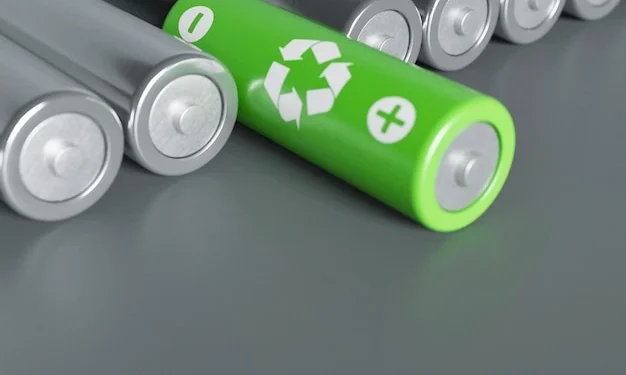According to Recycling today, the Recycled Materials Association (ReMA) has taken a strong stance on the proper collection, safety, and disposal of nonembedded small and medium-sized batteries. On February 27, 2025, during the ReMA Winter Board Meeting in Washington, the association’s Board of Directors officially approved a comprehensive policy to address the risks associated with improper battery disposal.
ReMA’s policy focuses on enhancing consumer education, ensuring producer responsibility for battery waste, and promoting safe recycling practices to prevent fires, injuries, and operational disruptions in the recycling industry.
The Growing Safety Risks of Improper Battery Disposal
Why Mismanaged Batteries Pose a Hazard
Lithium-ion and other rechargeable batteries are essential for consumer electronics, but improper disposal can cause fires, safety hazards, and significant financial damage. When discarded in regular waste or mixed recycling streams, these batteries can:
- Be difficult to detect in recycling facilities, increasing fire risks.
- Cause equipment damage and operational downtime in waste management systems.
- Lead to injuries among recycling workers and increased insurance liabilities for businesses.
According to ReMA, batteries must be handled properly by specialized recyclers to ensure they do not threaten public safety and recycling facility operations.
ReMA’s Policy Principles for Battery Collection and Recycling
To promote safe and efficient end-of-life battery management, ReMA supports policy measures based on seven key principles:
1. Consumer Education and Public Outreach
Raising awareness about responsible battery disposal is essential to minimize safety risks and encourage sustainable recycling practices.
2. Producer Responsibility and Funding
Battery producers should be financially responsible for the collection, transportation, processing, and public education efforts related to battery recycling. This funding should also support infrastructure upgrades to enhance battery detection and safety measures.
3. Battery Stewardship Organizations (BSOs) and State Oversight
BSOs should collaborate with state agencies to facilitate proper battery collection and recycling. These organizations would act as intermediaries, ensuring batteries are processed safely and responsibly.
4. Independent Recycling Should Be Allowed
Recyclers should have the freedom to collect and manage batteries independently, as long as proper reporting and responsible handling procedures are followed.
5. Safe Handling and Training for Battery Collection
Different types of batteries require specific collection, packaging, and transportation protocols. Collectors should not be required to handle battery formats they are not trained or equipped to manage safely.
6. State Oversight and Market Balance
A stakeholder advisory committee should ensure market fairness and transparency, preventing monopolistic practices and protecting data privacy.
7. Battery Design for Recycling
Manufacturers should be encouraged to design batteries for easier recycling, reducing hazards associated with battery disposal and making repurposing or recycling at end-of-life more efficient.
Additionally, commercial entities that knowingly or negligently dispose of batteries improperly should face civil penalties to enforce compliance and ensure industry accountability.
How These Measures Will Improve Battery Recycling
By implementing these policy recommendations, ReMA aims to:
- Reduce fire and safety risks in recycling facilities.
- Create a more efficient and sustainable battery recycling system.
- Ensure that battery producers take responsibility for their products’ environmental impact.
- Enhance consumer participation in responsible battery disposal.
Conclusion: Strengthening the Future of Battery Recycling
With battery consumption growing due to the rise of electric vehicles, consumer electronics, and energy storage systems, safe and efficient end-of-life management is more critical than ever. By supporting state oversight, battery design for recycling, and industry-wide cooperation, ReMA is helping shape a safer, more sustainable battery recycling ecosystem that benefits both businesses and the environment.
Want to stay updated on the battery industry? Check out the latest news on BatteriesDaily!











